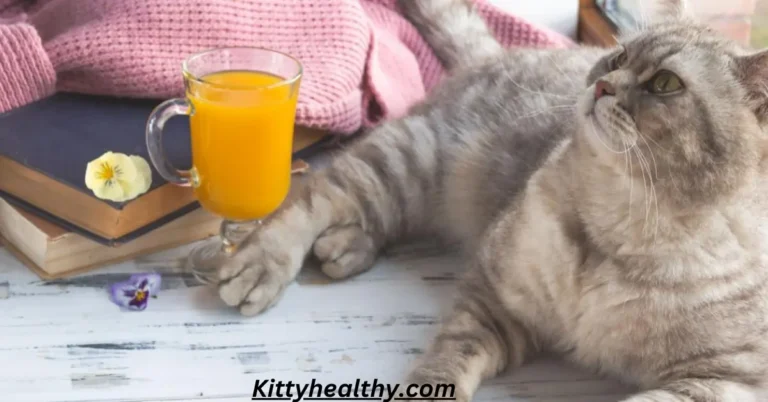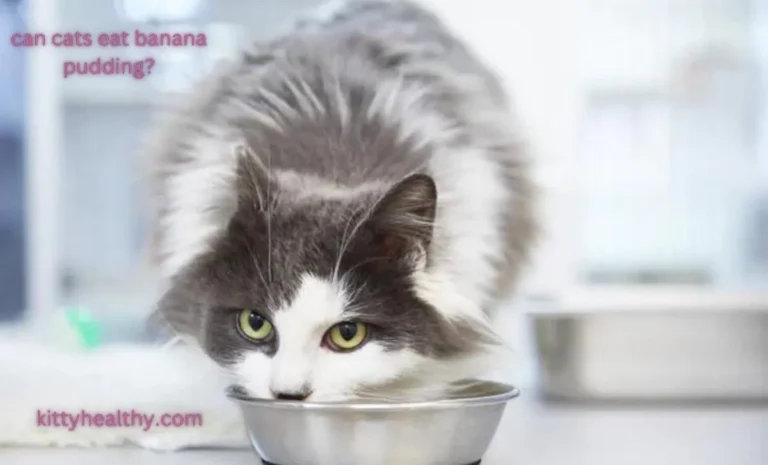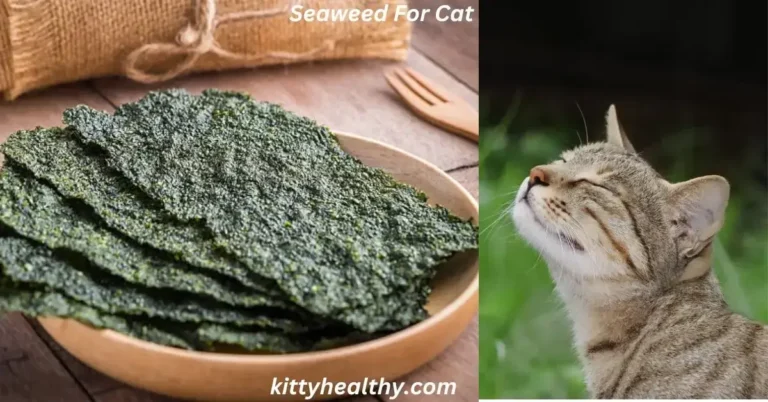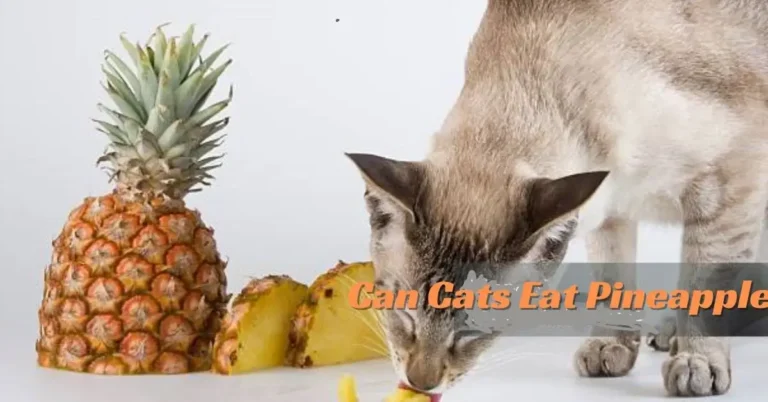What Fruits and Vegetables Cats Can Safely Eat And Why?
Fruits and vegetables like cooked carrots, seedless apples, blueberries, seedless watermelon, small pieces of broccoli, and cucumbers can safely be given to cats in small amounts as an occasional treat.
Also, as obligate carnivores, cats primarily need a meat-based diet to fulfill their nutritional requirements, including essential amino acids and vitamins not found in plant sources.
Moreover, these fruits and vegetables should complement, not replace, their essential meat-centric diet, offering additional hydration and fiber.
It’s fascinating to think about our feline friends indulging in the occasional fruity or veggie snack, isn’t it? Let’s dive into which ones are safe and why they can be a good treat in moderation.
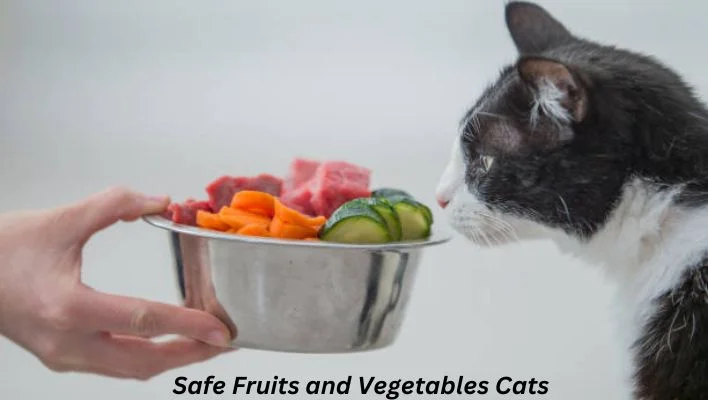
Fruits Cats Can Eat Safely
Cats can enjoy a variety of fruits safely, provided they are prepared properly and served in moderation. Here’s a look at some cat-friendly fruits:
- Raspberries and Blueberries
These berries are low in sugar and high in antioxidants, making them a healthy treat.
Small amounts can be a tasty treat; just make sure it’s plain banana without added sugars.
- Pineapple and Watermelon
Both are high in water content, offering a juicy snack that helps with hydration. Always remove the hard outer skin and seeds first.
- Drink Orange Juice
While citrus is generally not recommended for cats, a tiny bit of orange juice can be harmless if your cat shows interest. Always no added sugar and only as a rare treat.
Seaweed is packed with minerals and vitamins, but it should be unsalted and given in small quantities.
- Pomegranate, Cranberries, Dragon Fruit, Durian
These fruits are okay in small portions after ensuring all seeds are removed to avoid any risk of choking or toxicity.
- Huckleberries
Similar to blueberries, these can be a safe, antioxidant-rich treat.
When offering these fruits, remember to cut them into manageable, bite-sized pieces to prevent choking. Also, start with tiny amounts to see how your cat reacts, ensuring they
Cats Favourite fruit
Strawberries are a favourite among cats and an excellent source of potassium and fibre. They are also rich in Vitamin C, B1, B6, antioxidants and folate. These tasty tiny red fruits are also a great boost for your cat’s immunity.
Vegetables Cats Can Eat Safely
Vegetables can also be a part of your cat’s diet, offering fiber, vitamins, and minerals. Here are some vegetables that are safe for cats:
- Brussels Sprouts and Broccoli
These are high in fiber and vitamins but should be given cooked (steamed is best) to aid in digestion.
- Zucchini, Pumpkin, Carrots, Green Beans
These vegetables are safe for cats and can be a good source of hydration and nutrients when cooked and chopped.
- Endive, Turnip Greens, Spinach
These leafy greens are packed with nutrients but give them in moderation to avoid potential oxalate issues.
- Jicama, Okra, Beetroot
These are safe in small amounts and should be cooked and cut into small pieces and then feed to cat.
- Peas
Often found in commercial cat foods, peas are a good source of fiber and vitamins.
Like with fruits, vegetables should also be introduced slowly and in small amounts.
Cooking them without any spices or salt can make them easier for cats to digest and more appealing.
Cat’s Favourite food in veg
Among vegetables, cats show a particular liking for cooked pumpkin or steamed broccoli.
These choices offer a blend of appealing textures and potential health benefits, such as aiding in digestion and providing essential nutrients, making them a favored veggie treat for our feline friends when offered sparingly.
Important Considerations When Feeding Vegetables And Fruits To Cats
When considering adding fruits and vegetables to your cat’s meal plan, it’s essential to tread lightly and prioritize their health and happiness.
These natural treats can sprinkle a little joy into their routine, offering a delightful change from their usual fare.
However, remember that moderation is crucial—these should merely be occasional whispers of variety in their predominantly meat-based diet, not the main chorus.
Gradually welcoming new flavors into their world ensures a smooth transition, keeping their delicate digestive systems serene and content.
Before embarking on this culinary adventure, a heartfelt discussion with your veterinarian can guide you towards choices that nourish their well-being, ensuring these moments of exploration support their health as much as their curiosity.
FAQs
Certain vegetables can be safely incorporated into their daily diet in small amounts. Cooked green beans, steamed broccoli, and mashed pumpkin are among the veggies that can offer nutritional benefits without upsetting their digestive system when given in moderation.
For cats, blueberries stand out as one of the healthiest fruit options. They are rich in antioxidants, which support cellular health and promote the immune system. Blueberries are also low in calories and can be a refreshing treat, offering hydration alongside their nutritional benefits. However, they should be given in moderation to complement a balanced diet, ensuring the cat’s primary nutritional needs are met through high-quality, meat-based foods.
Cats are often wary or frightened by the smell of citrus fruits such as oranges, lemons, and grapefruits. These fruits emit strong, pungent aromas that many cats find unpleasant or overwhelming. This aversion is not just about fear but also a natural dislike for the scent. Consequently, citrus fruits can sometimes be used as a natural deterrent to keep cats away from certain areas or objects.

